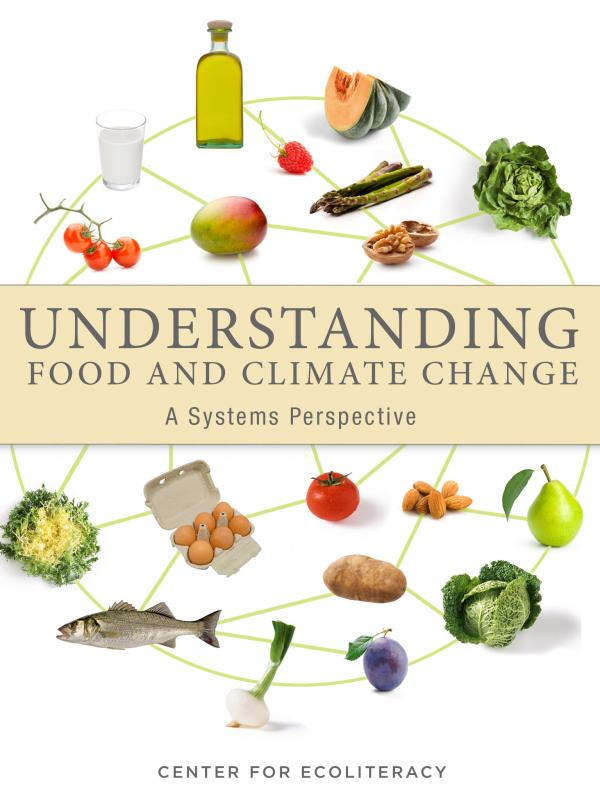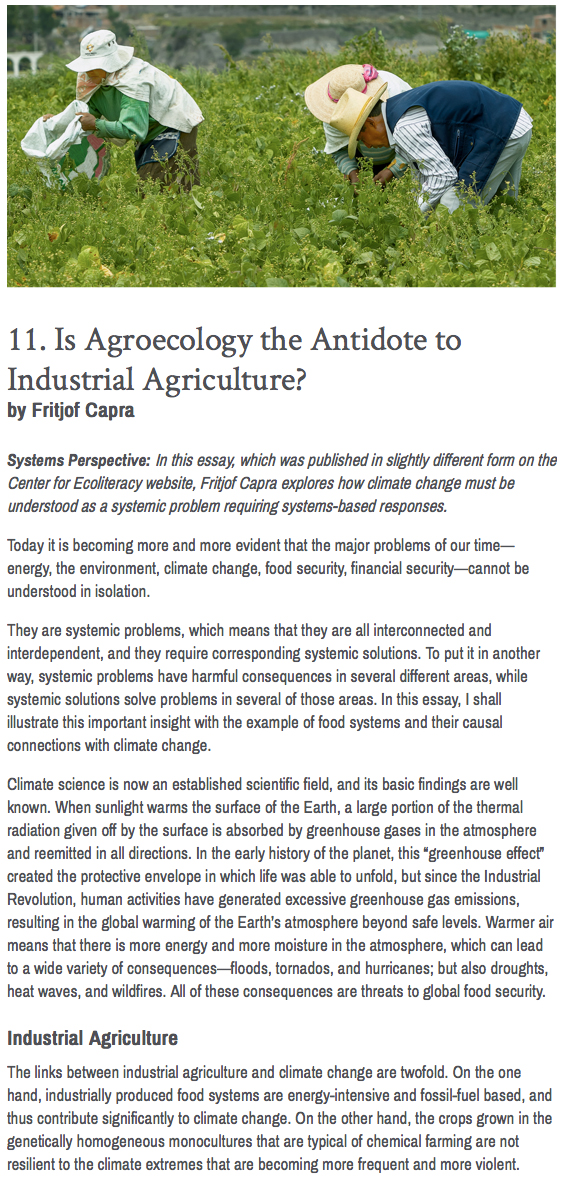UNDERSTANDING FOOD AND CLIMATE CHANGE: A SYSTEMS PERSPECTIVE

Understanding Food and Climate Change: A Systems Perspective explores the links between food systems and our changing climate with an emphasis on systems thinking. A systems approach helps to illuminate how seemingly disconnected phenomena are often dynamically linked and can be understood best when viewed in a larger context. This collection of essays contains an extensive bibliography that provides resources for further investigation.
Available as a free iBook for Mac and iPad users.
A web version is available for all computers and tablets:
Understanding Food and Climate Change: A Systems Perspective
Understanding Food and Climate Change: A Systems Perspective
WHAT'S INSIDE: A SAMPLE PAGE
WHAT PEOPLE ARE SAYING
"Engaging. Smart. Comprehensive. Understanding Food and Climate Change is what our nation’s youth need to face the challenges of our changing planet."
Pam Koch, EdD, RD
Executive Director, Laurie M. Tisch Center for Food, Education & Policy, Teachers College, Columbia University
Executive Director, Laurie M. Tisch Center for Food, Education & Policy, Teachers College, Columbia University
"The food and wellness movement and the movement to foster awareness and understanding of climate change are among the most powerful social movements in today’s global civil society. And yet, there is hardly any connection between the two, either conceptually or organizationally, even though a thorough understanding of the multiple links between agriculture and climate change seems critical for the survival and well-being of humanity. Understanding Food and Climate Change promotes such understanding in a lively, multicultural way. It will be an invaluable tool for food and climate educators and change advocates, and I highly recommend it."
Fritjof Capra, Ph.D.
Physicist, Systems Theorist, and Author
Physicist, Systems Theorist, and Author
"I have spent the last year educating myself about the critical and complex connections between agriculture and climate change. How I wish I had started with this guide!
Whitney Cohen
Education Director, Life Lab and Lecturer, UC Santa Cruz
Education Director, Life Lab and Lecturer, UC Santa Cruz
"Agriculture has a huge impact on the environment—greenhouse gases as well as pollution of air, water, and soil. The Center for Ecoliteracy’s Understanding Food and Climate Change is essential for finding out how this happens and what we can do about it."
Marion Nestle, PhD, MPH
Paulette Goddard Professor of Nutrition, Food Studies, and Public Health, emerita, New York University
Paulette Goddard Professor of Nutrition, Food Studies, and Public Health, emerita, New York University
"Understanding Food and Climate Change is a much-needed resource for educators everywhere that brings the food system “home" in a lucid and informed publication. The food sector, which includes farming, silvopasture, agroforestry, grazing, food waste, and dietary choices—is one of the two largest contributors to global warming, the other being transport. As a solution, it has the potential to be the largest sector in terms of its contribution because it can not only reduce and stop emissions, but it can also bring carbon back home through regenerative land use practices. "
Paul Hawken
Editor of Drawdown: The Most Comprehensive Plan Ever Proposed to Reverse Global Warming
Editor of Drawdown: The Most Comprehensive Plan Ever Proposed to Reverse Global Warming

